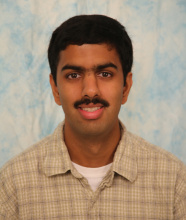Safe Planning and Control When Autonomy is Not the Only Driver
Safe Planning and Control When Autonomy is Not the Only Driver
Abstract
When developing planning and control algorithms for autonomous systems, we often assume that these algorithms will be the only significant source of inputs to the system. However, in some applications there may be an additional "driver", external to the autonomy pipeline, that has a large impact on the performance and safety of the overall system. In this talk, I will discuss two projects that investigate different aspects of this problem.
The first considers the effects of an external driver that acts alongside the autonomy but without any shared objective. For example, the aerodynamic forces acting on a micro aerial vehicle flying through a strong wind field can dramatically alter the vehicle’s motion, leading to violations of safety or operational constraints. Limited onboard computation also restricts modeling or incorporation of these nonlinear dynamics into the autonomy. This leads to the idea of Experience-driven Predictive Control (EPC). EPC builds on ideas from adaptive control and model predictive control by accumulating experience on how an external driver impacts the system while simultaneously leveraging that experience to ensure that constraints are met in a computationally efficient manner.
The second project considers the case where the external driver is actually the primary operator of the system, while the autonomy aims to assist this driver to safely achieve a common objective. A prime example of this is the next generation of advanced driver assistance systems that will be able to employ techniques developed for fully autonomous driving but in the context of keeping a human driver safe. The Toyota Guardian system is TRI’s novel approach to this problem, building on ideas from a variety of domains, ranging from aircraft control to shared autonomy. I will show a few preliminary examples of how this combination of the human driver and the autonomy can achieve superhuman performance and safety.
Bio
Vishnu Desaraju is a Senior Research Scientist at the Toyota Research Institute, Ann Arbor, MI working on automated driving technologies. He received a B.S.E. in Electrical Engineering from the University of Michigan in 2008, an S.M. in Aeronautics and Astronautics from MIT in 2010, and an M.S. and Ph.D. in Robotics from Carnegie Mellon University in 2015 and 2017, respectively. He received the AIAA Guidance, Navigation, and Control Best Paper award from SciTech 2018. His research interests include developing computationally efficient motion planning and feedback control algorithms for agile autonomous systems, including autonomous cars, boats, and micro air vehicles, with a focus on mitigating the effects of uncertainty to achieve safe and reliable operation in the field.


